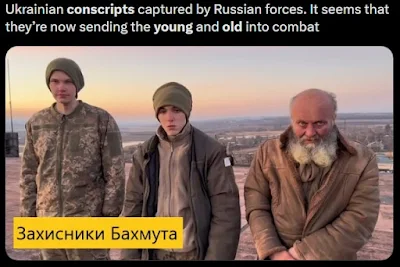This is the best portrait of the CIA documentary period. It would be easy tear into William Colby on a number of points but I found I liked some of his coldness and discipline. So I'll just leave one flower on the grave. When Colby was fired as director of CIA, more for symbolic purging reasons than any error on his part, he is filmed expressing a wish that an outsider next got the job. That man was George H.W. Bush and not even Director of CIA, William Colby was aware that George Bush had been on the books for so long he was instrumental in the murder of JFK. That's how deep the rabbit hole goes. Colby was just a clean face while the CIA needed it during the Church committee hearings.
It's an amazing documentary, absolutely stuffed with that Yale clique of secret society lizards who used the CIA and the Whitehouse to run the drug business with people like Colby unaware of it's meta purpose. If you pay attention closely you've got an Oval office audio recording of Averell Harriman pretending to be neutral while actually stitching JFK up with bad advice that the US puppet leader Diem in Vietnam needed taking down with a coup. One that Harriman was managing through his buddy Henry Cabot Lodge Jr the new ambassador in Vietnam. Colby is silent after indicating the pro and anti coup forces are evenly matched. Either he was too political to speak up for the country or just letting power do it's thing. Nobody will ever know. Nobody really knew him including his wife who has much that is likeable about her and much that is inconsistent. Hat's off to Cobly's son for making one of the most clearly framed portraits of an intelligence officer on film. Watch this documentary. You'll learn a lot.

Here's a Vanity Fair article:
On September 11, Carl Colby, a documentary filmmaker and son of the late C.I.A. director William Colby, was in Los Angeles watching the Twin Towers smolder on CNN. He was startled to hear former Secretary of State James Baker say that he believed the unprecedented attack could be directly traced to the dismantling of the C.I.A.’s ability to perform clandestine operations. It was a directive that came after William Colby testified before Senator Frank Church’s 1975 hearings on U.S. intelligence operations. In that post-Watergate era—four of the burglars had been found to have C.I.A. connections—and as Saigon was falling at the end of the Vietnam War, former C.I.A. Saigon station chief Colby’s blunt and controversial recounting of the agency’s more nefarious practices not only brought on Congressional oversight of the C.I.A. for the first time but also ensured Colby’s sacking later that year by President Ford.
In an effort to explain his father, Carl Colby’s new documentary, The Man Nobody Knew,which premieres tomorrow, offers a Who’s Who parade of former top-level C.I.A. and government officials as well as some of the most knowledgeable journalists who cover the agency—from Robert Gates and Donald Rumsfeld to Sy Hersh and David Ignatius. As they opine on the institution and William Colby’s influence, the film gives viewers a true sense of what it is to live a lie day after day and to hobnob at the highest levels in other countries—all while seeking to advance U.S. interests by whatever means necessary.
The dramatic events surrounding Colby’s career include a secret collaboration with the Vatican to defeat the Communist Party in Italy in the late 50s, his tenure as the head of the C.I.A. in the Far East during the buildup of the Vietnam war, the assassination of Vietnam’s president Ngo Dinh Diem in 1963, and Colby’s stewardship of the controversial Phoenix program—a measure that sanctioned the killing of thousands of suspected Viet Cong.
Carl told me he saw his father cry only two times: when his 24-year-old sister died of anorexia and epilepsy and when Saigon fell. He remembers his father yelling at him just once: when Carl denigrated Richard Nixon during Watergate. “Never call your president a liar!” his father burst out. Yet after his sister’s death, she was never spoken of again, and several years after William Colby was fired, Carl says, he abandoned his family with little explanation, other than to once declare, “I am taking myself off the pedestal.” He bought a red sports car to tool around Washington, got a flashier wardrobe, and married a much younger woman. Even William Colby’s death, at age 76, was fittingly mysterious. One afternoon in 1996, while staying at his Rock Island, Maryland, cabin, he paddled off in his canoe, and nine days later his body was found drifting near the shore. No foul play was suspected.
At its heart, the film is a poignant probing of an aloof and distant father who clearly excelled in compartmentalization, taking his family with him as he worked undercover at U.S. embassies. Did he ever really love his five children and Carl’s loyal and elegant mother, who also appears in the film—or were they too all merely cover for a calculating super-spy?
Maureen Orth: Do you think your father committed suicide?
Carl Colby: His death was ruled an accident—a stroke or a heart attack—but I think he was done. He didn’t have a lot left to live for. And he never wanted to grow old. He always refused the “senior discount.”
One day I told him that his old college buddy had been found sitting under a bridge suffering from advanced Alzheimer’s. And my dad said, “That will never happen to me. One day you’ll hear I’m walking along a goat path on a Greek island and I just fell into the sea.”
Growing up as the child of a C.I.A. agent, did you have any idea of what he did?
I was standing on a diving board at a club in Saigon when I was about 10, and some kid came up to me and said, “Your father is a spy. He works for the C.I.A.” So that afternoon I went up to him and said, “I heard you work for the C.I.A.” He told me, “I work for the embassy. Let’s just leave it at that.” It was like a pact. That was the time of James Bond, and I thought it was pretty cool—that’s why we spent weekends with Mme. Nhu or lived next door to the prime minister in Rome.
Then in 1966, I went on an elephant hunt in Indonesia and mentioned I had met a Mr. X. My dad just looked at me. “Don’t ever mention his name again.” Then I knew; this man lived under deep cover and by never repeating his name, this was my way of helping my dad perform his mission.
How do you think your father saw his career at the C.I.A.?
He felt he was on an honorable high moral mission—to bring providence, to make the world a better place. The world to him was a venal place, and he was one of those Americans who had seen the worst and practiced the worst. He thought a lot of Americans were optimistic and naïve but he saw it all for what it was, a dirty business.
That sense of mission must have become more difficult during Vietnam.
It was as if he were a Napoleonic officer or a general in Roman times—how to suppress the rebellion in Judea.
How did your father react after he was fired?
I think he was very bitter and angry. When he talked about it, I could see his upper lip quivering just a tiny bit. In our family that was a sign. We were taught never to exhibit vulnerability. He lost the center out of his life, and then he took off his trench coat and became a completely different man. He didn’t really need to be that guy anymore. He didn’t need my mother. He didn’t need us.
Your mother appears to have been very important to his career. She certainly seems charming on film.
I think of my mother as a Catholic Barbara Stanwyck with an Ivy League education. When they met, she liked my father because he was serious—everyone she knew left to go to war. She had a fiancé who died in the war. They were people ready to make great sacrifices. My parents weren’t that needy. These were men and women who were not interested in public adoration. It’s a graceless age now with reality TV and Facebook.
What did your mother think of the C.I.A.?
She saw it as “Catholics in action.” So many people in the C.I.A. then were Catholic. Her whole relationship with the family was predicated on [my father] doing the right thing. The C.I.A. was a necessary evil that she thought was driven by a moral rectitude that reflected all of our family’s Catholic values—Catholicism is one of the world’s great warrior religions.
Your mother was described as “the most loyal C.I.A. wife ever” by infamous C.I.A. counter-intelligence chief James Jesus Angleton.
In the earlier days it was more fun. She would say to my dad as they were going out, “Who are we tonight?” Then, as Vietnam went on, the only people in the room at their parties were other C.I.A. men and their wives. At nine p.m. the men would go into another room and close the door with their cigars and conversation. The women stayed in the dining room.
What do you think is your father’s legacy? In the film you say he had to testify before Congress 32 times in 1975.
He took on the toughest, dirtiest assignments that the White House could throw at him, and then they used him up and hung him out to dry. He was the reformer who saved the C.I.A. from itself. The price he paid was becoming the sacrificial lamb. Somebody had to take the fall. I think he took on the whole mess and was in turn consumed by the flames. It was like he purged himself of all the guilt and then walked away and re-invented himself just like phoenix rising from the ashes.
Why did you finally make this film?
It was a way to get underneath, to learn what motivated my father. Both my parents were only children. My grandfather in Minnesota traded spices and sat with Sitting Bull. My grandmother, Margaret Egan, gave my father all the love he ever needed. The fact he got married and had a family—it was like an accessory. Who was he? What was it all about? Were we just a cover? We have to live with that.






























